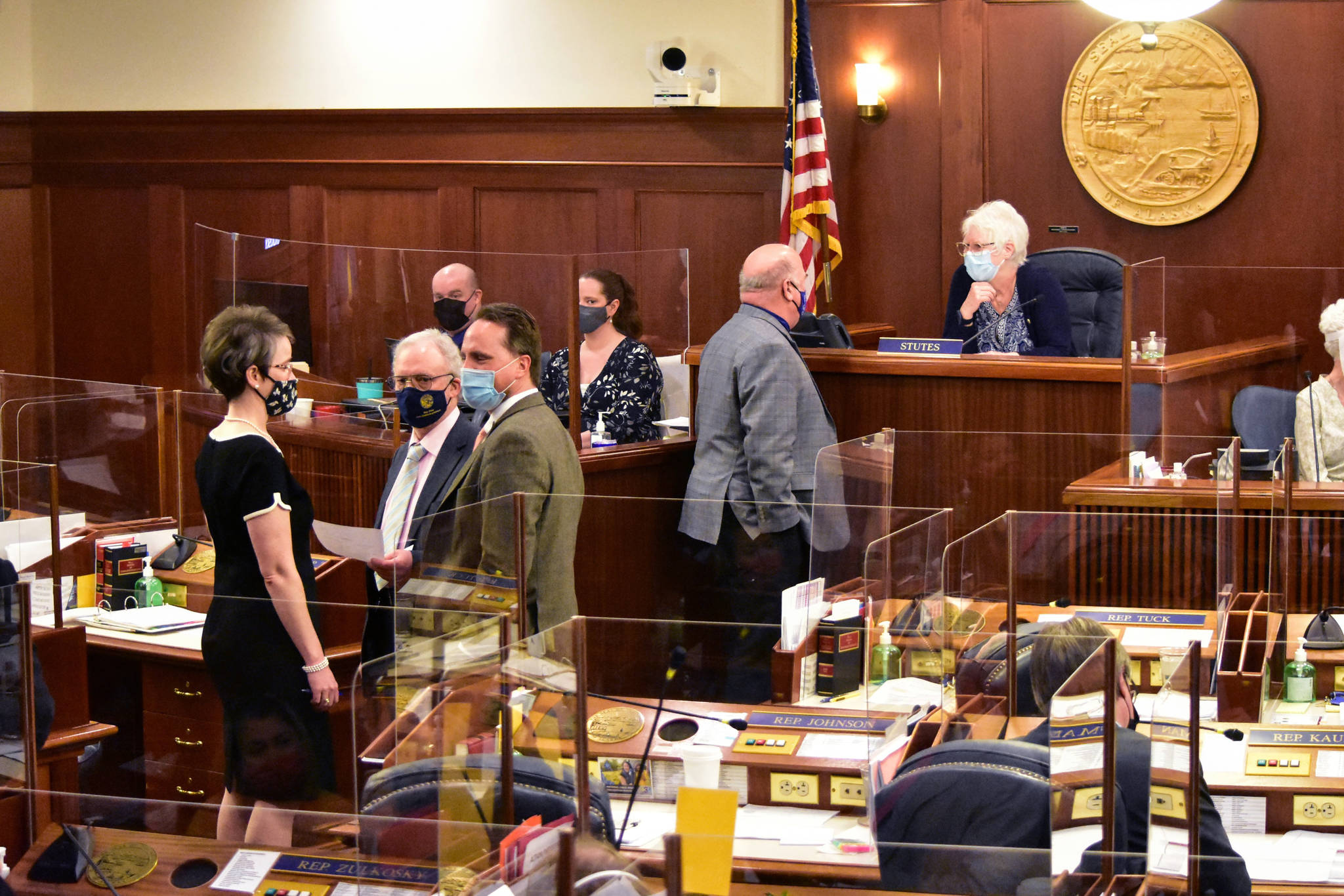The Alaska House of Representatives took action Wednesday that could allow school districts to avoid budgetary disruptions by forwarding a bill that would give funds to education and student transportation ahead of the typical appropriation process.
In past years, the Legislature has passed large budget bills typically toward the end of the session, but this year fast-tracked education spending is being handled separately.
Without knowing how much money they’re going to receive from the state, school districts often have to issue layoff notices to school staff, creating uncertainty in the school environment, said Rep. Sara Rasmussen, R-Anchorage, in a speech on the House floor Wednesday.
State Lawmakers in the House are trying in a bipartisan effort to pass their education funding bill ahead of the full budget so districts can avoid that process and retain staff. In a bill sponsored by House Finance Committee co-chairs Rep. Neal Foster, D-Nome, and Rep. Kelly Merrick, R-Eagle River, lawmakers are trying to appropriate an estimated $1,193,475,200 in education and student transportation funding.
Rasmussen offered an amendment with bipartisan cosponsors including Rep. Andi Story, D-Juneau, that would require full formula funding for Alaksa’s education programs through June 30, 2023. That future funding would give districts the ability to plan several years out and provide a much-needed sense of stability.
School districts are often required to draft their budgets before the Legislature can appropriate funds. Juneau School District finalized its budget late last month. Without knowing when or how much money will be appropriated, districts are forced to draft multiple budgets and anticipate low amounts, the bill’s sponsor statement says.
“In the face of uncertainty school districts will issue termination notices, commonly known as pink slips, to non-tenured teachers by May 15 and to tenured teachers by the last day of school,” the statement says.
Ensuring that spending through 2023 would provide an extra level of security for Alaska’s schools, Rasmussen said, and would conform with the state’s constitutional mandate to fund education.
“We often run out of time to get to some of our really good ideas,” Rasmussen said. “None of the other state agencies have a statutory requirement to pink slip their staff before May 15.”
While the bill had bipartisan support several Republican representatives took issue with the foward funding amendment, if not the education funding bill itself. Some GOP lawmakers said it wasn’t clear exactly how much the state would be spending, and not enough analysis had been done to determine the specific needs of districts.
Rep. David Eastman, R-Wasilla, said many of Alaska’s schools are failing and there are no provisions in the legislation to ensure increased performance. Rep. Kevin McCabe, R-Anchorage, said districts had received large amounts of federal relief money such as CARES Act funding, and it wasn’t immediately clear how much schools actually needed.
[School district announces expansion of in-person learning]
Several Republican representatives also complained they were being asked to make such a large decision through the amendment process, and said the forward funding issue should go through the normal committee process.
But supporters of the bill, including Republicans, said the bill’s funding was already set in statute by the base student allocation formula. Rep. Harriet Drummond, D-Anchorage, said the formula used to determine funding for schools could be changed by the Legislature in the current or future sessions.
Rep. Mike Cronk, R-Tok, a former teacher himself, said he beleived the uncertainty around school funding was driving talented teachers out of the state. The amendment passed 25-14, with Republican Reps. Bart LeBon and Steve Thompson, both from Fairbanks, joining Cronk, Rasmussen and the bipartisan Majority Coalition.
Lawmakers are trying to pass the bill as quickly as possible, and have scheduled a floor session for Thursday rather than the normally scheduled Friday session.
If the bill passes the House, it must pass through the Senate before returning to the House for a final vote.
• Contact reporter Peter Segall at psegall@juneauempire.com. Follow him on Twitter at @SegallJnuEmpire.

